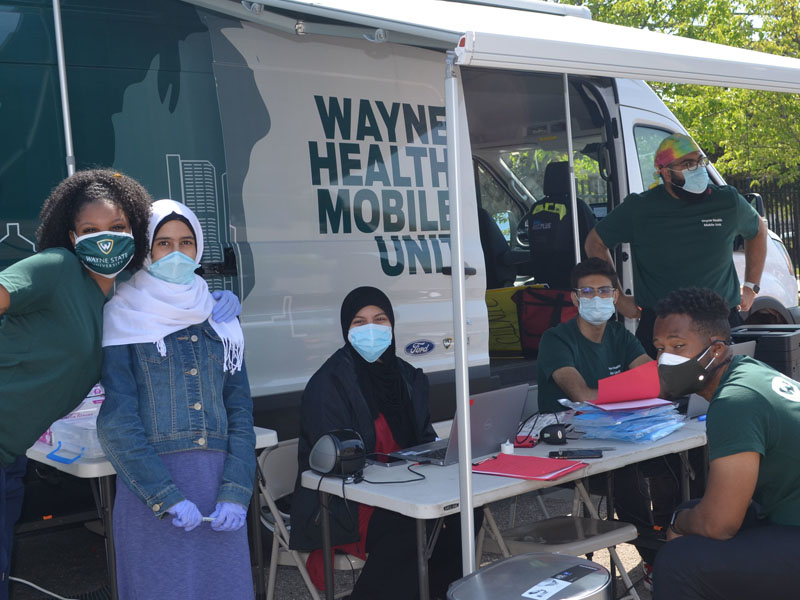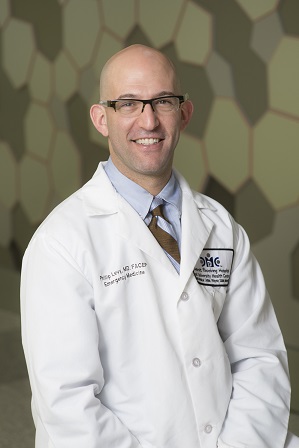
Meridian in Michigan, a leading managed care organization in the state of Michigan and a wholly-owned subsidiary of Centene Corporation, announced a partnership with the Wayne Mobile Health Unit to improve maternal and infant health and broadly support the WMHU's community outreach efforts to deliver preventive health services directly in neighborhoods, at homes and in workplaces.
The $1.1 million grant from Centene Foundation, the philanthropic arm of Centene Corp., and Meridian will allow Wayne Mobile Health Unit to deploy mobile vans to low, moderate and high-risk pregnant women living in metropolitan Detroit who have not engaged in routine prevention services and work to connect them to the Detroit Medical Center’s obstetrics and gynecology specialists, many of whom are Wayne State University School of Medicine faculty, for follow-up care. The hope is the initiative will reduce maternal health mortality rates, which are disproportionately higher among Black and Hispanic women. Women can participate regardless of whether they are Meridian members.
"Meridian is pleased to collaborate with the Wayne Mobile Health Unit and our other partners to provide targeted services in an efficient way to urban and rural communities across Michigan," said Kay Judge, M.D., Meridian's chief medical officer. "By focusing on proactive outreach to communities that have long suffered health inequities, this partnership will directly address disparities and provide a tangible solution that can be applied not only to maternal health but also a wide range of health conditions and respective outcomes."

In Michigan, Black women were 2.8 times more likely to die from pregnancy-related causes in 2015-2019 than White women, with a maternal mortality rate for Black women of 29.8 per 100,000 live births. Among pregnancy-related maternal deaths between 2015 and 2019, Michigan Department of Health and Human Services found more than 63% were preventable. To address racial discrimination and persistent systemic bias that contribute to poor maternal and infant outcomes, the maternal health pilot program will use geospatial analysis from Wayne State University's Population Health Outcomes Information Exchange, or PHOENIX, program to identify targeted neighborhoods in Detroit. Eventually, the pilot will be expanded to rural areas.
"The Wayne Mobile Health Unit is incredibly grateful to the Centene Foundation for their substantial financial commitment," said Phillip Levy, M.D., M.P.H., associate vice president for Translational Science at Wayne State University and director of the Wayne Mobile Health Unit. "This support will help sustain our existing outreach efforts while also allowing our expansion into the much-needed realm of maternal health. I look forward to working with Meridian and the Detroit Medical Center on this critically important endeavor and know that together we will positively impact the communities we serve."
In addition to connecting Wayne Mobile Health Unit patients with DMC follow-up care, the program will provide routine social determinant of health screenings with wraparound community health worker services to guide women through the process and ensure continuity of care. In its first year, the pilot aims to increase attendance at pre- and postnatal appointments by 10% to 20% in an effort to reduce maternal mortality rates.
The maternal health pilot builds on the Wayne Mobile Health Unit program's success during the COVID-19 pandemic. Funds from Meridian and the Centene Foundation will enable the Wayne Mobile Health Unit to hire staff to deliver care and continue its partnership of providing no-cost routine health screenings in communities. Additionally, Meridian and Wayne Mobile Health Unit will partner to deploy mobile units to reach Meridian clients who have not engaged in routine preventive care and will work together to create novel billing codes to enable direct and local access to prevention screening and care management.